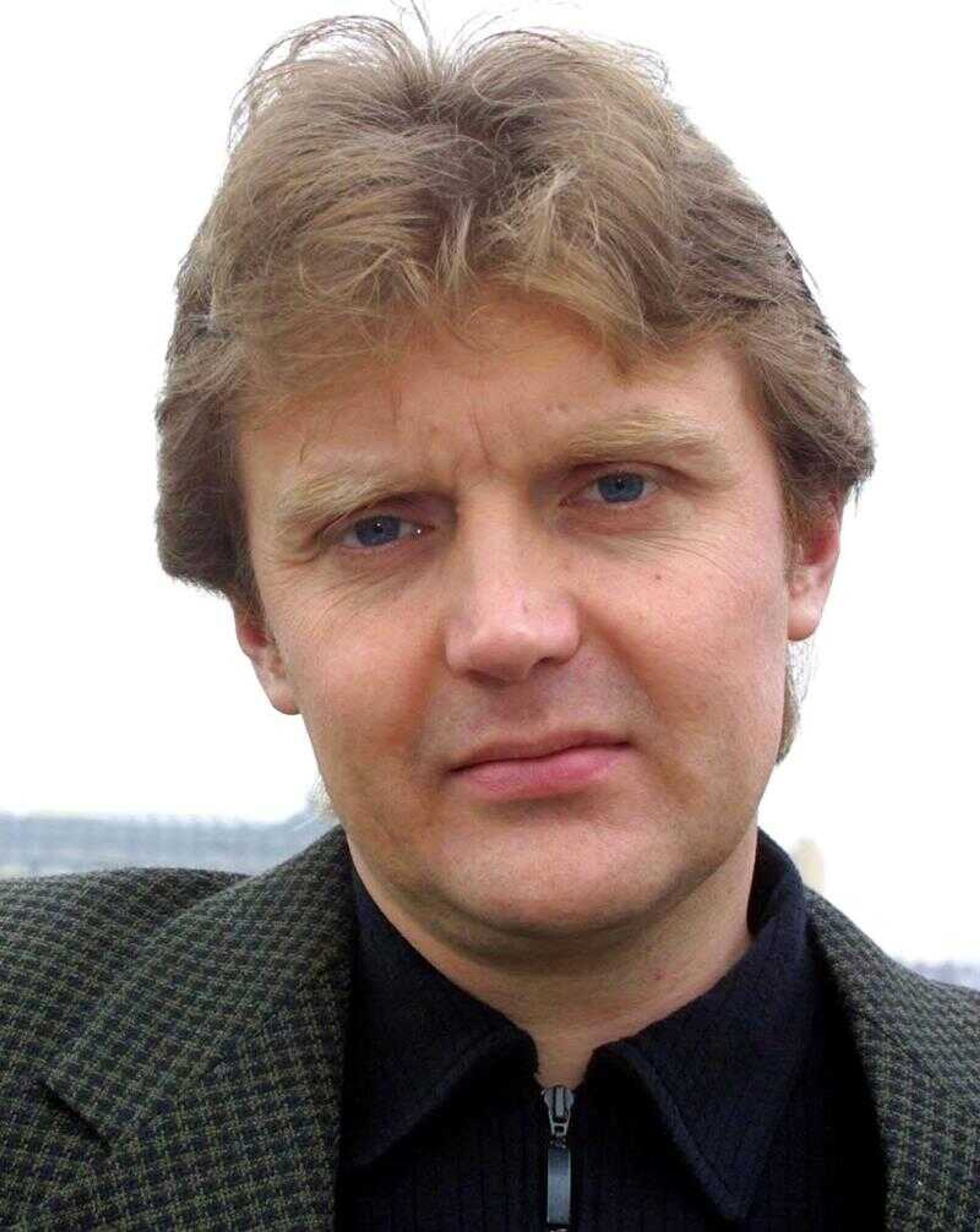Ex-spy who said he was poisoned dies
LONDON -- A former Russian spy who said he had been poisoned died Thursday night at a London hospital, following a mysterious and rapid decline that left doctors puzzled over the cause of death, officials said. Alexander Litvinenko, a fierce critic of the Russian government, had suf¿fered heart failure and was heavily sedated as medical staff struggled to pinpoint what had made the 43-year-old critically ill...
~ Some believe his death was carried out at the behest of the Russian government.
LONDON -- A former Russian spy who said he had been poisoned died Thursday night at a London hospital, following a mysterious and rapid decline that left doctors puzzled over the cause of death, officials said.
Alexander Litvinenko, a fierce critic of the Russian government, had suffered heart failure and was heavily sedated as medical staff struggled to pinpoint what had made the 43-year-old critically ill.
"The matter is being investigated as an unexplained death," London's Metropolitan police said in a statement.
The former spy said he believed he had been poisoned Nov. 1, while investigating the slaying of another Kremlin detractor -- investigative journalist Anna Politkovskaya. His hair fell out, his throat became swollen and his immune and nervous systems were severely damaged, he said.
Just hours before he lost consciousness on Tuesday, Litvinenko acknowledged in an interview with The Times newspaper of London that he would likely die and claimed the Kremlin was directly involved in his poisoning.
'What it takes'
"This is what it takes to prove one has been telling the truth," Litvinenko was quoted as saying.
Doctors at London's University College Hospital said tests had virtually ruled out poisoning by thallium and radiation -- toxins once considered possible culprits behind the poisoning.
"The medical team at the hospital did everything possible to save his life," hospital spokesman Jim Down said, confirming the Russian's death Thursday night. "Every avenue was explored to establish the cause of his condition, and the matter is now an ongoing investigation being dealt with by detectives."
Earlier in the day, as hospital officials reported that Litvinenko was deteriorating rapidly, family and friends rushed to his bedside.
Friend Alex Goldfarb joined Litvinenko's wife Marina, his son Anatoli and the former agent's father at the hospital.
"He went into a cardiac failure overnight and the hospital put him on artificial heart support," Goldfarb said. "He's on the ventilator, he's getting artificial resuscitation."
Anti-terrorist police were investigating the poisoning, which friends and dissidents also allege was carried out at the behest of the Russian government. Litvinenko sought asylum in Britain in 2000, and has been a relentless critic of the Kremlin and the Russian security services ever since.
Litvinenko also publically linked the Kremlin to Politkovskaya's death while speaking to London's Frontline Club media group last month.
"Somebody has asked me directly, who is guilty of Anna's death? And I can directly answer you: It is Mr. [Vladimir] Putin, president of the Russian Federation." Litvinenko told the group at the Frontline Club media group.
On Wednesday, the Russian Foreign Intelligence Service, the SVR, issued its strongest denial yet that it was involved in any assassination attempt. "Litvinenko is not the kind of person for whose sake we would spoil bilateral relations," SVR spokesman Sergei Ivanov said, according to the Interfax news agency. "It is absolutely not in our interests to be engaged in such activity."
Litvinenko worked both for the KGB and for a successor, the Federal Security Service.
In 1998, he publicly accused his superiors of ordering him to kill Russian tycoon Boris Berezovsky -- now exiled in Britain -- and a year later spent nine months in jail on charges of abuse of office, for which he was later acquitted, and which prompted his move to London.
On the day he first felt ill, Litvinenko said he had two meetings. In the morning, he met with an unidentified Russian and with Andrei Lugovoy, a former KGB colleague and bodyguard to one-time Russian Prime Minister Yegor Gaidar at a London hotel. Later, he dined with Italian security expert Mario Scaramella to discuss the October murder of Politkovskaya.
Scaramella told reporters in Rome on Tuesday that he had traveled to meet Litvinenko to discuss an e-mail he received from a source naming the killers of Politkovskaya, who was gunned down Oct. 7 at her Moscow apartment building, and outlining that he and Litvinenko were on a hit list.
Goldfarb said that he had a photocopy of the four-page e-mail and confirmed that it did read like the hit list described by Scaramella.
"What's in there confirms what Scaramella said. It lists several targets for assassination, among them are Politkovskaya, Litvinenko, Scaramella, Berezovsky and others," he said. But he refused to say who compiled the document, saying that it could jeopardize the police investigation into the poisoning.
After visiting the hospital on Thursday, Berezovsky told the AP that British police have yet to speak to him, but hoped they would be in contact over the next two days. The police declined to comment about whether they had the e-mail.
Goldfarb said Wednesday that there was nothing out of the ordinary in Litvinenko's meeting with Lugovoy, who also worked as bodyguard to Berezovsky, the most high profile Russian exile in London.
Litvinenko refused to implicate any of the people he met on the day he said he believed he was poisoned.
Connect with the Southeast Missourian Newsroom:
For corrections to this story or other insights for the editor, click here. To submit a letter to the editor, click here. To learn about the Southeast Missourian’s AI Policy, click here.









